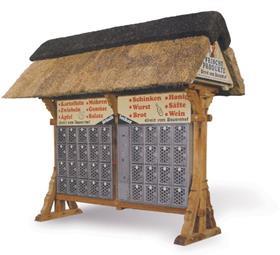
A new year has just begun, prompting humans to peer instinctively and with a certain amount of superstition into the future as they search for that elusive ‘better life’. Last year, 1.2m people in the UK were expected to try to quit smoking as their New Year’s resolution. Of that number, statistics suggest that a whopping 95 per cent of those will have failed by Easter.
The number of people who broke their vow to invest in a spandex outfit and a gym membership was presumably far greater. But how many chose this opportunity to make an promise to themselves to cut out fatty and sugary food and start consuming more fruit and vegetables? And more importantly, how many have comprehensively, abysmally, failed in their endeavour?
We can only assume that the success rate was far from impressive. We can also assume that countless people will be making the same ill-fated resolutions year after year. Those in the fruit and vegetable sector should be scratching their heads raw and hairless over this annually missed opportunity.
Well, it would at last appear somebody has seen the light.
At the Interpom Primeurs exhibition, which took place in Belgium from 30 November to 2 December, Dutch firm Automaten Centrale introduced its new vending machine for potatoes. The company has also produced comparable vending machines that offer a wide assortment of fresh fruit and vegetables.
According to reports, hundreds of these vending machines are currently in use in the Netherlands and Germany, while they are also becoming increasingly popular in Switzerland and Austria, causing some observers to wonder (a) where these machines might turn up next and (b) what took them so long to set up this enterprise?
Back in 2003, French organisation CTIFL – the interprofessional technical centre for fruit and vegetables – conducted a pilot project to investigate the use of vending machines as a means of increasing opportunities for children to consume fruit and vegetables during school hours.
Unfortunately for the project, vending machines have faced a complete ban from schools in France since 2004, regardless of their contents. So although children were no longer subjected to the daily temptation of chocolate and crisps, they were also not exposed to new opportunities to consume fresh fruit and vegetables.
These fresh produce vending machines undoubtedly increase the availability of fresh fruit and vegetables and create an alternative to the salty and sugary snacks that are commonly on offer. They provide an ideal service for those with hectic lifestyles, as well as those whose movements are restricted, such as factory workers or schoolchildren. With these new vending machines, fresh produce companies will finally be given the same kind of access that used to be given to confectioners.
The chief stumbling block previously preventing the concept from coming to fruition was the products’ perishability. Now, however, thanks to a specially developed cooling system, fruit and vegetables can be stored for longer. Last year, several companies joined forces to investigate the commercial viability of fresh produce vending. Following the testing of various products at a company location, a high school and a factory, it was confirmed that such a model could be adopted on a commercial basis.
Outside of Europe, similar schemes are reportedly in progress. In Australia, RP Vending has launched its Schools Go Fresh service, providing state-of-the-art fresh food vending machines to educational centres across Victoria, stocking a variety of individually packed fruit and vegetable snacks in time for the start of the 2009 term.
The vending machine franchise company is now supplying a variety of machines that maintain an internal temperature of 3°C, making it possible to store a selection of products, including sandwiches, dairy products, ready meals, fruit and the usual confectionery.
Of course, one big question remains over how many children will go for the fruit over the chocolate bar?
Nevertheless, increased availability of fresh produce is evidently a good thing, as is increasing its visibility, particularly to young people so commonly targeted by junk food manufacturers.
However, it does make you wonder… what with fresh produce vending machines and the rise of such phenomena as internet shopping and self-service check-outs, how long will it be before human interaction becomes entirely unnecessary?



